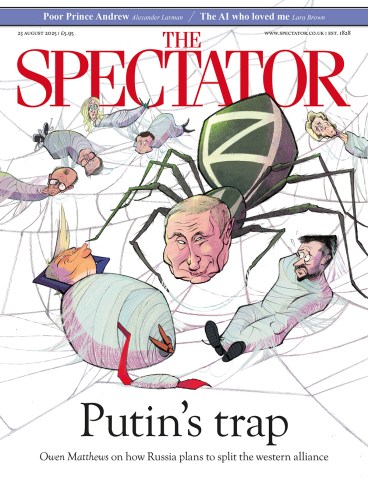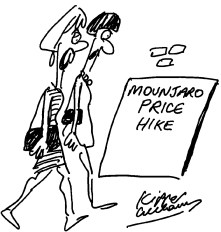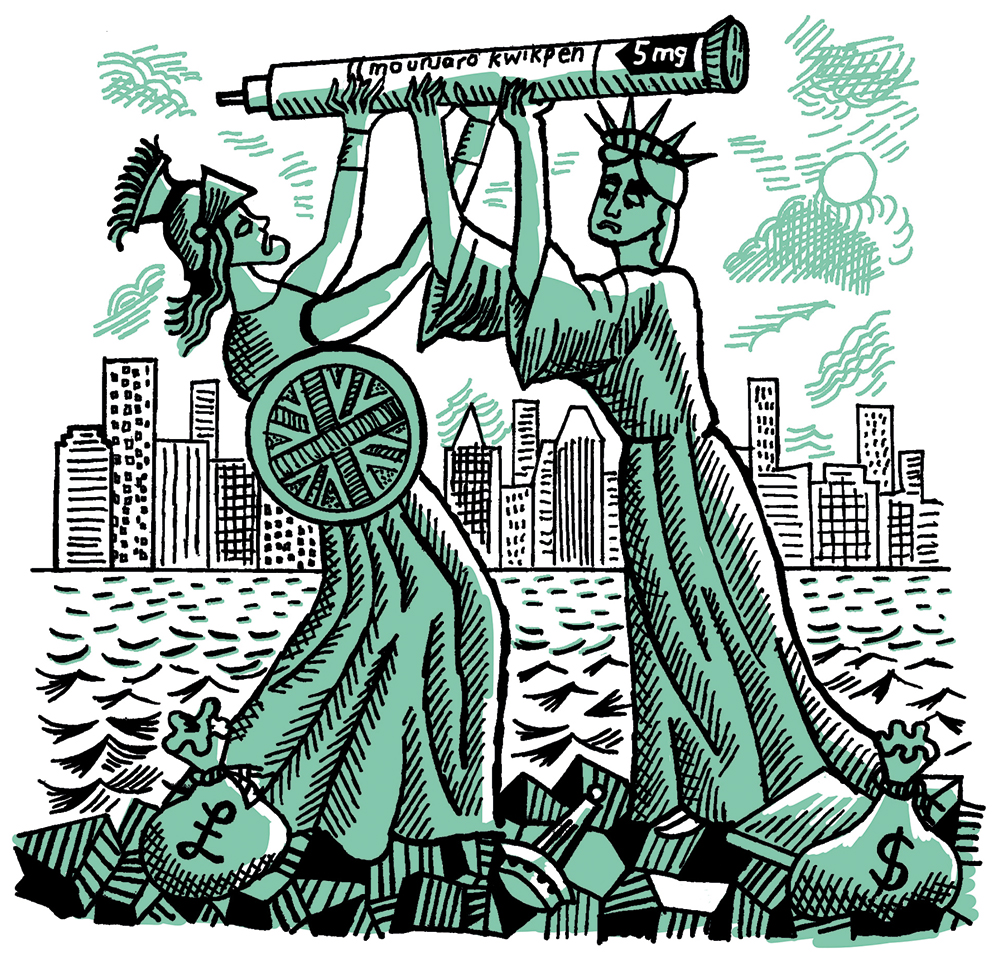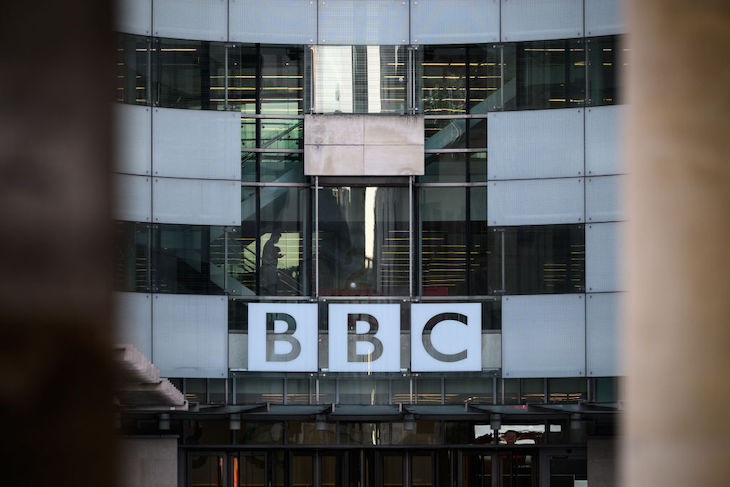
‘A friend of mine who’s slightly overweight, to put it mildly, went to a drug store in London,’ Donald Trump said aboard Air Force One. Earlier he had told reporters: ‘He was able to get one of the fat shots. “I just paid $88 and in New York I paid $1,300. What the hell is going on? It’s the same box, made in the same plant, by the same company.”’
You can see why the dealmaker-in-chief was irked. And when Trump is irked, someone usually pays the price. In May, the President signed an executive order for ‘most-favoured-nation prescription drug pricing for American patients’. It was a warning to drug companies, as well as other countries, that Americans were tired of paying nearly three times more for the same medicines as patients abroad. The US is home to less than 5 per cent of the world’s population and yet American consumers account for almost three-quarters of global pharmaceutical profits, because manufacturers heavily discount their drugs overseas and make up the difference by inflating prices in the States.
Trump’s war on drug pricing will affect other areas of British medicine beyond weight-loss jabs
As the President puts it, ‘freeloading’ foreign customers ‘get a free ride’. He’s not wrong. But while Trump may get his wish in stopping overseas health systems from getting cheaper deals, it’s not obvious that profit–making companies will cut their prices in America. The more likely response is that they’ll raise them everywhere else.
Eli Lilly, the American pharmaceutical giant behind the weight-loss jab Mounjaro, has announced that from September the recommended retail price of its strongest monthly dose in Britain will leap from £122 to £330 – inflation of more than 170 per cent. The company knows the NHS won’t actually pay that much: it has already negotiated substantial discounts for the doses it prescribes. But by hiking the list price on the highest dose (which relatively few patients use), while cutting the private deals on lower doses, Lilly can appease Washington and protect its market at the same time.
For now, anyway. But demand is picking up. In Britain, around 1.5 million people are already on weight-loss drugs, with 90 per cent paying out of pocket. Most take Mounjaro, while a smaller number are on Wegovy, the sister drug to Ozempic. Novo Nordisk, the Danish manufacturer of Wegovy, has agreed to keep its UK price low for the time being. But costs will eventually be driven up for Wegovy users too if Mounjaro users, faced with a much bigger bill, convert to Wegovy en masse, squeezing supply. Fat loss clinics are already seeing a 500 to 600 per cent increase in Brits switching to Wegovy, which – come September – will cost half the price of Mounjaro.
Trump’s war on drug pricing will affect other areas of British medicine too. Weight-loss jabs have become the symbol of American pharma – and its many excesses – but they are by no means the only miracle drug we get for cheap. Take Casgevy, a US-made gene therapy that can treat the blood conditions beta thalassemia and sickle cell disease. One dose costs more than £1.6 million at list price. Thanks to its clout as the country’s single dominant buyer, the NHS has secured a confidential – though significant – discount.
Casgevy’s eye-watering price is easy to justify: therapies at the frontier of medicine cost billions to develop. British politicians love to remind us that the UK is a world leader in life sciences, and in many ways that’s true, but it’s the US that is funding nearly half of all global life-sciences research and development. Trump, in typical fashion, wants the credit – or at least cheaper price tags. But drug makers won’t cut their profits; they’ll shrink everyone else’s discounts. The NHS’s bargaining power may shield patients for a time, but price rises are coming. UK officials know it, too.
Even before the latest hikes on the fat jabs, government papers released alongside the US-UK trade talks in May noted that the NHS would look at the concerns of the President. No prime minister or health secretary could openly sign up to higher drug costs borne by the NHS, but they knew Trump had not finished going after what he considers to be unfair trade practice.
The uncomfortable truth for the British is that as much as we mock US healthcare as extortionate and venerate our NHS as sacred, we live off America’s excess. The American healthcare system is Britain’s greatest scapegoat: it’s absurdly expensive, highly inefficient and still doesn’t manage to provide universal coverage. Indeed, it’s the only healthcare system in the developed world that can distract from just how poor our own is: a ‘National Health Service’ that falls short of practically every standard and target set for it. The NHS survives only because we ignore its outcomes. Measure after measure shows that plenty of people are being failed by an expensive, yet decaying system.
Britain spends around £36 billion a year on pharmaceuticals, £19 billion of that coming from the NHS. Medicines are already the health service’s second-biggest expense after staff. But that number would be a lot higher without America. Britain may be world-class in medical research, but we spend just 0.3 per cent of GDP on drug research and development, compared with America’s 0.8 per cent. American money makes Britain’s drug research possible. And for years, until drugs lose their patent, Americans pay exorbitant costs which subsidise the NHS’s bargain prices.
This model which so annoys Trump perhaps helps explain why the NHS continues to enjoy such widespread public support, despite its many failures. We’ll tolerate months-long waiting lists, worse survival chances and outdated facilities if we have cheap or ‘free’ access to life-changing medicines. But will we put up with the broken system if we have to start paying a fair whack for drugs, either directly at the pharmacy counter or indirectly through the increased taxation that would be needed to fund them?
The government won’t give up our bargain pricing without a fight. Quietly, and at significant political cost, health officials will roll out a new strategy. We’re never going to pay American prices for drugs – the ‘free at the point of use’ funding model simply could not afford it. Instead, we’ll try to make our research environment so attractive to manufacturers that they’ll reward us by maintaining drug discounts.

That’s the real motivation behind Wes Streeting’s planned reforms for the NHS, which are championed by his supporters as a way to improve the patient experience and attacked by his critics as a covert means of privatising the health service. Take the single patient record, which NHS England says will give ‘every part of the NHS a full picture of the patient’. Perhaps – but it will also make it far easier to identify people for clinical trials and medical research.
Look at the partnership between the Wellcome Trust and the government to create a £600 million health data research service. The stated aim is to ‘simplify access to health data and speed up research’. But it also makes Britain an attractive place for pharmaceutical companies. The offer is simple: we’ll make it as easy and welcoming as possible for you to do your research here, you’ve just got to keep paying for it.
This is the part British politicians never want to say out loud, especially when it comes to healthcare: someone, somewhere, is always paying for it. Drugs aren’t ‘cheap’. The NHS isn’t ‘free’. There are always trade-offs: either higher prices, longer wait times, or uncomfortable deals and data swaps with Big Medicine. No matter how you spin it, Britain’s ‘free ride’ is coming to an end.









Comments